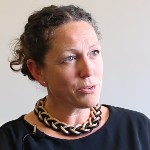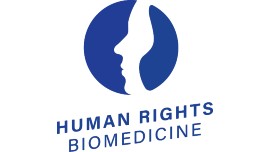Promoting children’s participation in decisions about their health
 Conference 4 April 2025 | Strasbourg and online
Conference 4 April 2025 | Strasbourg and online
The event is part of the Mid-Term Review Conference of the Strategy for the Rights of the Child (2022-2027), organised under the Luxembourg Presidency of the Committee of Ministers of the Council of Europe.

Building on the participation of experts, healthcare professionals and a group of children, this session will provide a platform for exchanges on the important topic of child participation in decisions about their health, and will be an opportunity to increase awareness, discuss challenges as well as opportunities.
The session will include a presentation of the Council of Europe’s resources on the topic: the Guide to children’s participation in decisions about their health, and related material developed with a group of children.
Panelists will present and discuss some of the good practices highlighted in the guide. Part of the discussion will focus on how to deal with situations where disagreements arise between children/parents/healthcare professionals.
Programme
9:00 - Opening statements
9:15 - Children’s participation in decisions about their health: from theory to practice
- Setting the scene: defining and exploring children’s participation in the context of individual health decisions
- Presentation of Council of Europe resources:
- First panel discussion on implementation, challenges and good practices
10:30 - Coffee break
11:00 - Managing opposition, disagreements and conflicting views
- Common situations and guiding principles
- Second panel discussion
11:45 - Q & A session
12:15 - Closing statements
12:30 - End of the session
Background
Children have a right to express their views in all matters that affect them, and to have these views properly taken into account – whether at home, at school, or in the community. How does this translate in healthcare situations? How does one ensure that children effectively and meaningfully participate in decisions about their health?
Child participation is the fifth pillar and an important objective of the Council of Europe’s Strategy for the rights of the Child. The Council of Europe strives to mainstream this principle across its standard-setting, monitoring and sector-specific work, including in the field of health and biomedicine.
International human rights instruments recognise that children are rights holders with evolving abilities to make decisions in all aspects of their lives, including their health. Research in the field of healthcare indicates that there are many benefits in involving children in decisions. Their participation is considered important for achieving high-quality pediatric care. Encouraging child participation in decisions about their own health is not only about respecting their rights, it is also about fostering trust, improving communication and enhancing the effectiveness of care. This said, there is often uncertainty as to how this translates in practice. Healthcare professionals may sometimes find it challenging to turn this principle into action, particularly when faced with complex situations.
In 2023, the Steering Committee for the rights of the child (CDENF) and the Steering Committee for Human Rights in the field of Biomedicine and Health (CDBIO) jointly developed a Guide to children’s participation in decisions about their health, with a view to supporting healthcare professionals and helping them develop their practice, informed by guiding principles, examples and good practice from across Council of Europe member states.
The Guide first presents the legal and conceptual framework for children’s participation in the field of healthcare, and then provides guidance and practical advice for engaging with children throughout the decision-making process. It stresses the importance of providing appropriate and adapted information and of creating a safe and inclusive environment where children feel comfortable to express themselves. Finally, it looks at how to effectively consider children’s opinions and balance them with the guidance of parents and health professionals, ensuring that decisions remain in their best interests. The Guide is available in a dozen languages.
A group of children developed an adapted version of the guide, with a view to further empowering children and helping them take an active and meaningful part in decisions about their health.
With this work, the Council of Europe hopes to contribute to improving the way in which children are involved and listened to when it comes to their health, an area where all too often still, children’s opinions remain overlooked, dismissed or undervalued, especially when adults perceive them as being too young or too uninformed to contribute meaningfully.
Aim of the Session
Building on the participation of experts, healthcare professionals and a group of children, this session will provide a platform for exchanges on the important topic of child participation in decisions about their health, and will be an opportunity to increase awareness, discuss challenges as well as opportunities. The session will include a presentation of the Council of Europe’s resources on the topic: the Guide to children’s participation in decisions about their health, and related material developed with children.
Invited practitioners will present and discuss some of the examples of good practice that are highlighted in the guide. Part of the discussion will focus on how to deal with situations where disagreements arise between children/parents/healthcare professionals.

Andrew Clarke (Moderator)
Senior Health Advisor for the NGO Save the Children, UK
Andrew Clarke is a Senior Health Advisor for the NGO Save the Children and is a paediatric nurse and public health specialist by background. He supports clinical and public health programs for children and families in countries including Yemen, Bangladesh, Nepal, Ethiopia and Malawi. He also oversees a research portfolio to trial new approaches to long term challenges in child health and is an Honorary Clinical Researcher at Lancaster University. Andrew has worked in the field of child rights, health equity and quality of care for over twenty-five years, including the development and integration into practice of early models using child rights-based Standards. He also undertakes advisory roles on child rights and health for organisations such as the Council of Europe and the World Health Organisation.

Imelda Coyne
Professor and researcher in children’s nursing and healthcare, Trinity College Dublin, Ireland
Professor Imelda Coyne is a leading authority in children’s nursing and healthcare research, with a distinguished career dedicated to enhancing the lives of children, young people, and families. She is Professor in Children's Nursing and Director of the Trinity Research in Childhood Centre at Trinity College Dublin. A highly respected scholar, she is a Fellow of Trinity College Dublin, a Fellow of the American Academy of Nursing, and a Fellow of the European Academy of Nursing Science. She also serves as Editor-in-Chief of the International Journal of Adolescent Medicine and Health.
Professor Coyne has made significant contributions to child health, family-centred care, and shared decision-making in paediatric healthcare. A strong advocate for participatory research, she has been instrumental in ensuring that children’s voices are heard and valued in healthcare decision-making. Her research highlights the importance of involving children in their own care, shaping policy and practice in paediatric healthcare and nursing at both national and international levels.
She has led numerous high-impact research initiatives, including key consultations with children and young people that have influenced government policy in Ireland. In 2017, she led a consultation with young children (aged 3–5) to inform the Irish Government’s First 5 Early Years Strategy (First 5: A National Consultation with Young Children on A Whole-of-Government Strategy for Babies, Young Children and Their Families). In 2011, she led a nationwide consultation with children and young people, shaping the Government’s Better Outcomes, Brighter Futures policy framework (Life as a Child and Young Person in Ireland).
A prolific author, Professor Coyne has published extensively in peer-reviewed journals and contributed to key texts in paediatric nursing. She is an active member of international research collaborations and advisory groups, working to improve child health services globally. A sought-after keynote speaker, she shares her expertise at conferences worldwide, inspiring professionals and policymakers alike.
Her dedication to advancing child health and wellbeing is evident in her roles as a mentor, educator, and researcher, where she continues to shape the next generation of nursing professionals and healthcare leaders.

Lucy Bray
Professor in Child Health Literacy in the Faculty of Health, Social Care and Medicine at Edge Hill University, UK
Lucy Bray has worked within acute children’s nursing for over twenty five years, specialising in children’s procedures and surgery. She works as a Professor in Child Health Literacy in the Faculty of Health, Social Care and Medicine at Edge Hill University in the UK.
Her research interests include the education, information needs and preparation of children, young people and their parents for surgery, procedures and interventions with a particular focus on how we can reduce the use of holding and restraint within paediatric practice. She leads the international ISupport collaboration who have developed rights-based standards for children having tests, treatments, examinations and interventions. The majority of Lucy’s research is based on qualitative research approaches and uses innovative methods which aim to facilitate the involvement of children and young people.
Video: Listening to young peoples' voices about health care procedures.

Maria do Céu Machado
Pediatrician with competence in Management, retired Full Professor at the Faculty of Medicine of the University of Lisbon (FMUL), Portugal
Maria do Céu Machado is a MD, PhD, Paediatrician with a degree in Health Management, National Coordinator for Rare Diseases, and retired Full Professor of Pediatrics - Faculty of Medicine of the University of Lisbon where she graduated, President of Astra-Zéneca Foundation and President of the Society of Medical Sciences (Portugal).
She was President of the Disciplinary Board of the College of Medicine (2020-2023), Member of the National Council for Ethics and Life Sciences, President of INFARMED (2017-2019), High Commissioner for Health (2006-11), Clinical Director of Centro Hospitalar Lisboa Norte (2013-2014), Head of the Department of Pediatrics of Hospital Santa Maria (2011-2017) and Hospital Fernando Fonseca (1996-2006), President of the National Committee for Children and Adolescent Health. She has degrees in Neonatology and Health Management.
She received eight research grants, three awards (Prémio BIAL de Medicina Clínica in 2002 and in 2006, Prémio da Qualidade Maria Amélia de Mello in 2005), and has published nearly 200 articles and 13 books.

Amalini Simon
Psychologist and Director of Centre Babel, Paris, France
Amalini Simon is a clinical psychologist, Doctor of Psychology specialising in multilingualism in children. She heads the Centre Babel (Paris, France), a leading centre for transcultural issues. She is the coordinator of a university diploma in Psychiatry and transcultural skills (University Paris 13), and is responsible of transcultural consultations.

Laura Palazzani
Professor of Philosophy of law and biolaw at Lumsa University, Italy
Full Professor of Philosophy of law and biolaw at Lumsa University, Rome; Italy’s delegate to the Council of Europe Steering Committee for Human Rights in the fields of Biomedicine and Health (CDBIO); member of the ethics committee in clinical practice at Bambino Gesù Hospital in Rome and vicechair of the committee at Meyer’s Hopsital in Florence.

Young delegates
Denis, Dion, Elodie, Jose, Lana, Leonardo, Sarah
Child advisors from six European countries (Northern Ireland, Italy, Croatia, Spain, Bulgaria, Albania) taking part under the coordination of Child Rights Connect.
Related resources
- ISupport - International collaborative rights-based standards to Support Paediatric Patients during clinical prOcedures by Reducing harm and establishing Trust.
- Video: Listening to young peoples' voices about health care procedures. Trigger warning - This video includes information and accounts of medical procedures, distress and restraint.
- Centre Babel (in French)
- Council of Europe guidelines on child-friendly healthcare
- Child Rights Connect









